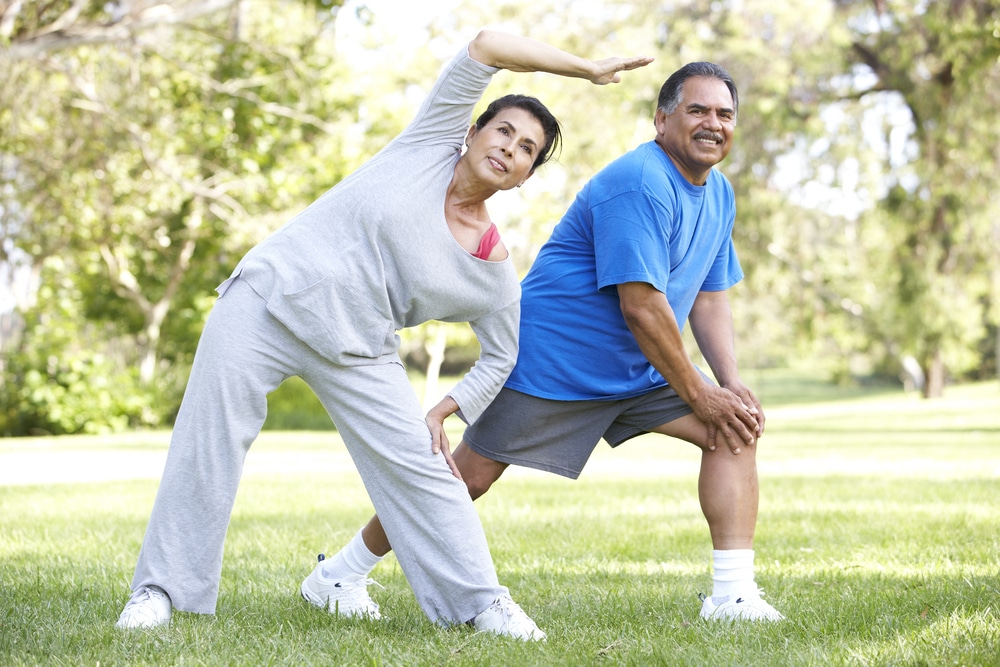It definitely won’t happen today or tomorrow. It probably won’t happen next month, or even the month after, for that matter. But at some point, life will go back to the way it was before COVID-19 plagued our world and disrupted our lifestyles.
When that happens, what had become the new normal for most of 2020 will shift back to our old routine. As much as we yearn for a prompt return to our pre-pandemic world, folks may eventually find themselves caught off-guard by the transition.
The wakeup call for many people will be when they assess their health and wellbeing for the first time since March of 2020. Between working from home, staying isolated, and uncertainty regarding the future, it’s not surprising that numerous individuals put diet, exercise, sleep, and other health factors aside for a large part of 2020.
The transition away from coronavirus-related life changes is as much of an opportunity to improve yourself and grow as any change that we’ll experience in our lives. Read on to learn more about our recommendations for healthy living after COVID-19.
Stay Sober
Like an ongoing global health crisis and its resulting social constrictions, stressful situations often lead to an uptick in drug and alcohol abuse. COVID-19 has lead to a steep spike in alcohol sales, leading people to wonder whether increased rates of substance use disorders or alcohol and drug dependence are close behind.
If you or someone you know is currently dealing with addiction, it’s best to seek help sooner rather than later. Treatment for drug and alcohol addiction exists for people who need it, so don’t wait to get help.
Achieve sobriety now and lay a solid foundation to remain sober after the world shifts back to a new normalcy. That way, you can hit the ground running after COVID-19, rather than stumble back into life as it was before the pandemic.
Get Your Sleep Schedule In Check
The past several months have caused many of us to slip into bad sleeping habits, like staying up too late and oversleeping. Eventually, this can create a cycle that’s difficult to escape.
However, once life morphs back to normal, our sleeping patterns need to do the same. Start with necessary steps, like avoiding caffeine in the evening, limiting late-night smartphone usage, and optimizing your bedroom to make it more rest-friendly. Consider taking a bath with lavender-scented bubbles before bedtime to induce calmness and promote tiredness. If you struggle with falling asleep, try taking a natural supplement, like Melatonin.
Prioritize Physical Activity
Many people have used the COVID-19 pandemic to get into shape by buying at-home fitness machines and streaming virtual exercise classes. Others, however, have watched their waistlines expand (and their fridges empty).
If the latter describes your situation, it’s time to start burning calories and prioritizing your physical health.
Getting back into a regular exercise routine will not only help to lose weight, release beneficial endorphins throughout your brain.
These endorphins released during cardiovascular exercise tend to leave people feeling better about themselves and help them think more clearly. A positive attitude and a newly developed sense of self-confidence will be ideal for returning to everyday life after the novel coronavirus.
Improve Your Eating Habits
Between the product shortages at the grocery store and an increase in delivery and to-go orders, it’s not surprising most families have been eating less-than-ideal meals for the majority of the past few months.
Formulate a roadmap for getting back on track with your diet. The same goes for your children. That way, you and your family won’t suffer from malnutrition or make lousy eating habits long.
Indulge In Your Favorite Activities
Doing the things we enjoy most is essential for our mental health and well being. Whether it’s taking a walk in the park, going for a swim, seeing a movie, or visiting friends, these and other popular activities are mostly on-hold for the remainder of 2020.
While many activities remain off-limits due to social distancing requirements, several options exist. Find time to do the things you love to do, to help get your mind back to a sense of normalcy.
Restore Intimacy
The start of social distancing created a lot of extra time for romantic partners to be intimate. Yet as the weeks and months dragged on, some couples may have found themselves seeing too much of each other.
It turns out there’s truth to the idea that “familiarity breeds contempt.” With that said, partners need to rekindle their romance as life returns to normal. A healthy romantic relationship is more than making the most of close quarters; it’s finding ways to remind your partner why you love them and devise methods of bringing your relationship back into the realm of normalcy and routine.
Intimacy isn’t just for romantic partners, though. Be sure to check in with your friends and family members and try to schedule meet-ups after COVID-19 has died down to reconnect with those you haven’t seen recently.
Daily life still remains relatively abnormal due to the COVID-19 pandemic. However, it’s safe to say it won’t always be like this. While researchers are scrambling to find effective treatment and create a vaccine for the prevention of COVID-19, those currently experiencing health struggles due to the pandemic’s effects ought to start doing what’s necessary to get back into shape and prioritize every aspect of their health. That way, when life finally goes back to the way it was, we’re primed to make the very most of it.








Reply